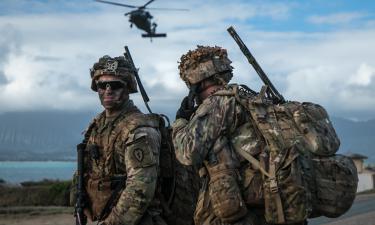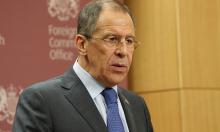2018 - Welcome to Russia
Russia has been chosen by the FIFA Executive Committee to host the 2018 FIFA World Cup, the fruit of a lot of hard work and determination from the Russian delegation and a clear sign from the international community that the massive support for Russia's bid from the State was recognised.
In choosing Russia, FIFA remains faithful to its message, "Opening new borders". Whereas the direct competitors (England, Belgium/Netherlands and Portugal/Spain) had already hosted major soccer tournaments, this will be the first time for Russia.
For Russia's coach Dick Advocaat, the decision taken today in Zurich "will give a significant boost to the development of football in the country. I am sure that such a huge country has a lot of talent" adding that "[Dmitry] Medvedev and [Vladimir] Putin are interested in the development of football... That is why I look forward for Thursday and for FIFA's decision".
FIFA's decision came after months of deliberation following the close inspection of Russia's facilities last August. The Russian national concept is based around 16 stadiums in 13 cities, in five clusters, namely:
Northern Cluster: St. Petersburg and Kaliningrad; Central cluster: Moscow; Volga Cluster: Yaroslavl, Nizhny Novgorod, Saransk, Kazan, Samara; Ekaterinburg cluster: Ekaterinburg; Southern cluster: Rostov-on-Don, Krasnodar, Sochi.
Andrei Arshavin, Russia's soccer team captain, was bid ambassador for Russia 2018. Speaking of his passion for the game, he states, "As the captain of the Russian national team, it is my duty to support the development of football throughout my country" and explains that by choosing Russia, FIFA is opening "a completely new chapter for the FIFA World Cup itself".
He considers that the decision taken today will "galvanize our game at every level. For me as a footballer, the grass-roots game, coaching and education, training opportunities and of course stadiums, play a pivotal role in the sport".
Russia, with tremendous backing from the Government, will invest one billion USD into soccer development by 2015 and this includes soccer for women, beach football and programmes for the handicapped.
Nine out of the 16 stadiums already exist, are being renovated or else are already under construction.
Arshavin concludes: "As Russia is opening up, with also many foreign players joining our local clubs, all of us are learning. Working towards best practices, the Russian Football Union has integrated fan representatives into the organisation, giving fans a voice. The RFU have increased their efforts to combat racism and intolerance and I am sure that this will provide positive results".
And this will be a wonderful opportunity for Russia to offer the world another "rainbow experience", showing that 143 million people, representing 180 different nationalities, can stand side by side and claim proudly "I am Russian". This speaks volumes about the wonderful diversity that constitutes Russia and brings to the game a wonderful dimension which should permeate throughout all sports.
It is the message that cultural diversity creates strength and it sends a clear message to those who promote intolerance and racism that they have no place in the hearts and minds of today's international community.
Timothy Bancroft-Hinchey
Pravda.Ru
Subscribe to Pravda.Ru Telegram channel, Facebook, RSS!




